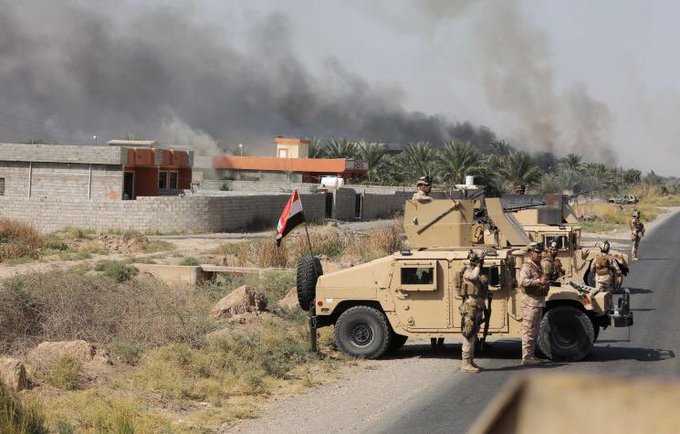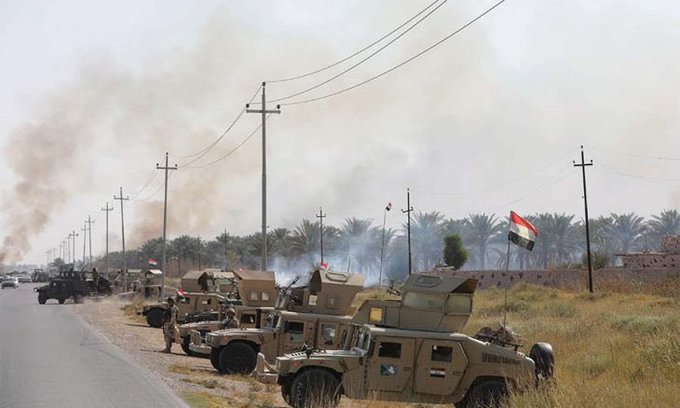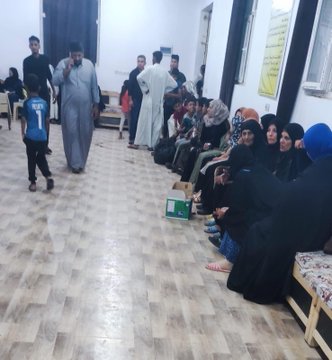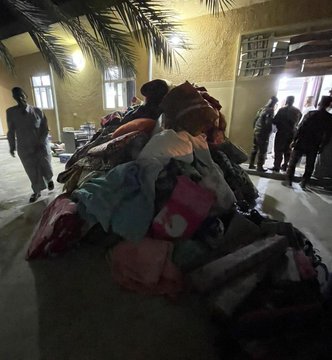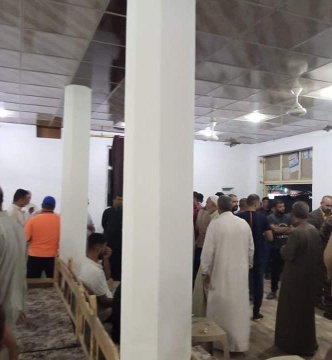First off, Jimmy Dore.
THE INTERCEPT is a disgrace. It begs for money while it's writers take home six-figure-plus checks. It's all a fraud.
Speaking of frauds . . .
Joe Biden's world is a world of failure. From NPR's MORNING EDITION:
NOEL KING, HOST:
The U.S. economy slowed down over the summer as a wave of new coronavirus infections washed over the country. The Commerce Department said this morning that U.S. GDP grew at an annual rate of 2% in July, August and September. That is down from 6.7% during the spring. NPR's Scott Horsley is following this one. Hey, Scott.
SCOTT HORSLEY, BYLINE: Hi, Noel.
KING: So we knew the delta variant was a drag on the economy. There - no surprise there. How much of this slowdown can be blamed on the virus, and how big a deal is this?
HORSLEY: It's a big part of it. The Commerce Department says all of this slowdown in economic growth can be tied to slower growth of consumer spending, and a good deal of that was caused by the delta variant. You know, when the quarter started back around the Fourth of July, forecasters thought we'd be seeing growth similar to what it was in the spring, maybe even faster. Remember; employers added more than a million jobs between June and July. But that economic sizzle quickly fizzled once new infections and hospitalizations and deaths tied to the delta variant mounted. Here's how Mark Zandi of Moody's Analytics describes it.
MARK ZANDI: Delta did a lot of damage. I mean, it made consumers more cautious. Travel fell off. People went to restaurants less often. It rescrambled global supply chains. Delta did a real number on the economy. It really hurt.
HORSLEY: The virus also kept millions of would-be workers on the sidelines. You know, some people got sick. Some people stayed home to avoid getting sick. Some were busy looking after other ones, other people who were sick. So job growth also slowed sharply in August and September, and that was another drag on the broader economy.
KING: Mark Zandi mentioned supply chains. We have experienced the delays and the shortages, many of us out there. How are those cutting into growth?
HORSLEY: Yeah, that's been another big speed bump. The Commerce Department highlighted the drop in auto sales. And that's not because people don't want cars; it's that carmakers can't produce enough because of that shortage of semiconductors. And that's just the most high-profile example of supply chain bottlenecks that we're seeing throughout the economy. I talked to Sereta Stephens. She runs the Tackle Box 2 restaurant in Fremont, Ohio. She had a lot of crowds this summer, about double what she had last year, but she said keeping those people fed was a challenge.
SERETA STEPHENS: We're having trouble getting food - onion rings, cheese sticks. There's just stuff I can't get. If I order it today, it might be here next week, or it might be in two weeks.
What's the excuse Joe? Didn't know we had a pandemic until after you ran for president? What a failure! Can you imagine how the media would be dogging Donald Trump -- and rightly so -- if he were president right now? But we're all supposed to be okay with senile Joe destroying everything -- over and over
Here's C.I.'s "Iraq snapshot:"
Ooh, still waiting
I'm just a fool
Ooh, I'm a fool
I'm just a fool to keep waiting
To keep waiting
“We will try to unify the vision of Nineveh candidates this time so that we go to the Iraqi parliament as a strong Nineveh parliamentary lobby” with a single vision, Muzahim al-Khayat said at an interview with Rudaw’s Bestoon Khalid on the sidelines of the Middle East Research Institute (MERI) forum in Erbil.
The coalition aspires and seeks to build an “institutional civil administration” in all its sectors in Nineveh, he added.
Iraqis headed to the polls in an early vote on October 10. The election was held in response to Tishreen (October) 2019 protests complaining of corruption and ineptitude among the ruling class and political system. Turnout was a record-low 41 percent, reflecting voter disillusionment and mistrust in the country’s political system.
Starting in Iraq, REUTERS reports, "Islamic State militants killed 11 people including a woman on Tuesday in an attack on a village in Diyala province, east of Iraq, the country's Joint Operations Command said in a statement." Is it ISIS? It may be. ISIS has never been vanquished. And the reasons ISIS took root in Iraq were never addressed. If the issues continue to go unaddressed, ISIS will actually grow stronger. AFP notes, "The attack on Al-Rashad in Diyala province left "11 dead and 13 wounded", a local security source said." In a Tweet, Barham Salih, president of Iraq, states this was a cowardly attack He calls for stronger borders and backing of the security forces.
Hundreds of villagers have fled their homes in Iraq’s eastern Diyala province amid rising fears of another violent sectarian conflict breaking out there following an Islamic State (ISIS) attack earlier this week.
On Tuesday night, ISIS attacked the al-Rashad village in Sharaban (Muqdadiya) town in Diyala, killing 15 civilians and wounding many others.
Al-Rashad’s population is primarily Shiite Muslim. Reports indicated that local villagers took up arms and attacked the nearby Sunni-majority village of Nahr al-Imam in retaliation the following day. They reportedly killed a dozen people and set fire to houses.
The attacks come despite the fact that Iraq has been actively arresting IS leaders over the last few months. The deputy leader of IS, the group's finance chief and many other prominent commanders are among those killed or arrested by the government.
After the Diyala attack, tribal men from the victims' families attacked the nearby Sunni village of Nahr Al-Imam, accusing them of betrayal and siding with IS.
According to security officials who spoke to Al-Monitor on condition of anonymity, approximately 3,000 fighters from the Bani Tamim tribe (from which the victims hail), supported by Popular Mobilization Units (PMU), surrounded the village of Nahr Al-Imam from all sides. They also destroyed and burned villagers' gardens and houses with bulldozers.
Many villagers escaped from the area and called on the government to protect them. Some were able to seek refuge in the mosques of Baquba, the capital city of Diyala, leaving all their belongings behind. This could lead the Sunni tribes to retaliate against Bani Tamim members and eventually to a tribal conflict within the Diyala province.
A homeless Iraq War veteran's service dog was allegedly tased by police while her owner was being arrested for panhandling, leading to a series of events that ended in the dog's death.
Gastonia, North Carolina police officers encountered veteran Joshua Rohrer and his dog Sunshine, who was trained to help him cope with post-traumatic stress disorder caused by his time in the Army National Guard, after responding to a call about alleged panhandling.
Witnesses told WCNC in Charlotte that police officers got violent with Rohrer shortly after arriving at a median on October 13 where the veteran and his dog were seated.
“The cop demanded his identification,” stated witness Justyn Huffman. “He couldn’t move fast enough, so he reached into his pocket for his ID. He was slammed against the automobile. He was placed in handcuffs.” Sunshine, according to Huffman and two other witnesses, jumped into action and bit one of the officer’s boots. Sunshine was allegedly hit with a stun gun by an officer, leading her to flee with one of the prongs still attached to her body.
“‘Don’t shoot the dog!’ we’re yelling from the rooftops. ‘Don’t shoot the dog,’ says the narrator “Huffman stated. “‘My dog! My dog!’ exclaimed [Rohrer]. They dragged him behind the police car and slammed him down on the pavement.” The 911 call that led to the confrontation was made public by police. A lady can be heard on the conversation asking if it’s “legal for an adult to be standing on the junction with a dog asking for money,” claiming that the scenario is “bullcrap,” and accusing Rohrer of “using the dog to gain money.” Rohrer, who fought in Iraq and Kuwait from 2004 to 2005, told Military Times that he was not panhandling but had accepted money without asking for it. He claimed that the police confronted him and arrested him “aggressively.”

